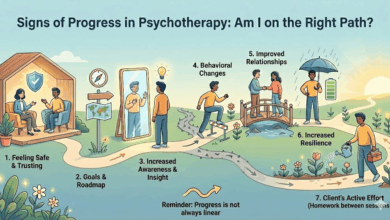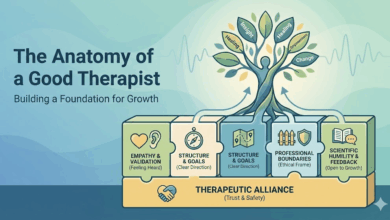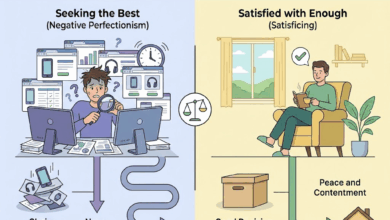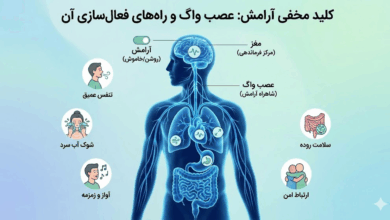Seeing the Present Clearly: A Fresh Look at Mindfulness and Mental Health

In a world built on speed, noise, and constant distraction, mindfulness has reemerged — not as a spiritual trend, but as one of the few psychological practices that teaches us how to be here, now.
But how scientific is mindfulness, really? And why has it become such a central topic in modern psychology?
A comprehensive review published in Clinical Psychology Review examined dozens of clinical and experimental studies and found that regular mindfulness practice can reduce anxiety and depression, improve emotional regulation, and enhance overall well-being. Yet, the authors also point out that mindfulness is no magic fix: its effectiveness depends on how it’s practiced, the individual’s mindset, and even their cultural context.
What Is Mindfulness?
Contrary to popular belief, mindfulness doesn’t mean “emptying the mind” or “stopping thoughts.” It means paying deliberate attention to the present moment without judgment.
When you’re drinking your coffee and you truly taste it — without your thoughts drifting between yesterday and tomorrow — you are being mindful.
Psychologists have reframed this ancient concept, originally rooted in Buddhist meditation, into a secular and scientifically grounded practice.
Studies show that mindfulness can lower activity in the amygdala (the brain’s stress center) and strengthen neural networks linked to focus and emotional control. The result? Less reactivity, more calm, and better decision-making.
How It Works
When anxiety or negative thoughts arise, our instinct is often to fight them or get swept away by them. Mindfulness offers a third option: observing without getting entangled.
Instead of saying, “I am anxious,” one simply notes, “I’m noticing anxiety.” That tiny shift — from identification to observation — restores a sense of control.
Research shows this approach disrupts rumination, the repetitive cycling of negative thoughts that fuels anxiety and depression.
What Studies Reveal
According to the review:
- Participants in mindfulness programs consistently showed reduced symptoms of stress, anxiety, and depression.
- They demonstrated improved emotional awareness and greater ability to regulate reactions.
- Even physiological markers like blood pressure and heart rate tended to improve.
- The benefits were strongest among those who practiced regularly over longer periods.
Still, the authors note that most studies were short-term and didn’t track whether benefits last over time.
Mindfulness in a Modern World
Perhaps mindfulness’s growing popularity comes from our deep collective fatigue with overstimulation.
We live amid endless notifications, news alerts, and comparisons. Mindfulness is, in essence, a quiet rebellion; a way to reclaim our attention.
It’s about choosing where to place the mind, instead of letting every beep and scroll decide for us.
This restoration of conscious attention is what psychologists call agency: the ability to direct one’s own experience in a distracted world.
From the Lab to Daily Life
Like physical exercise, mindfulness only works with consistency.
Even 10–۱۵ minutes a day of mindful breathing or body awareness can bring noticeable changes over time. The most effective programs combine:
۱- Gradual, guided instruction
۲-Short but regular practice
۳- Integration into daily life; not just meditation cushions, but conversations, commutes, and chores
Mindfulness isn’t about escaping life; it’s about showing up fully for it; in traffic, at work, in a difficult conversation.
A Critical Perspective
The authors also warn against the “commercialization of calm.” In recent years, the meditation industry has become a billion-dollar business. Quick-fix apps and pop spirituality risk turning mindfulness from a discipline into a product.
True mindfulness isn’t about chasing serenity; it’s about learning to observe life as it unfolds, with all its discomforts. It’s slow work. Honest work.
In Conclusion
Mindfulness is an invitation to return to the simplest thing of all: the present moment.
Yet simplicity doesn’t mean ease. The mind resists stillness; it rushes to the past or future. Learning to stay is the practice.
The review in Clinical Psychology Review suggests mindfulness can bridge mind and body, awareness and action, stress and peace. But if we treat it like a pill for anxiety, we miss its essence.
Mindfulness isn’t about withdrawal from life; it’s about full participation in it.
In the taste of coffee, the breath, the sound of the street; it reminds us that presence itself is healing.




